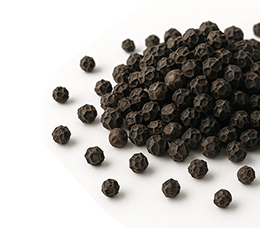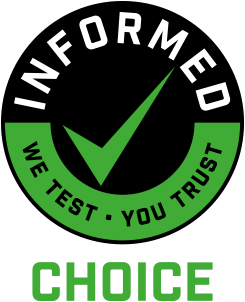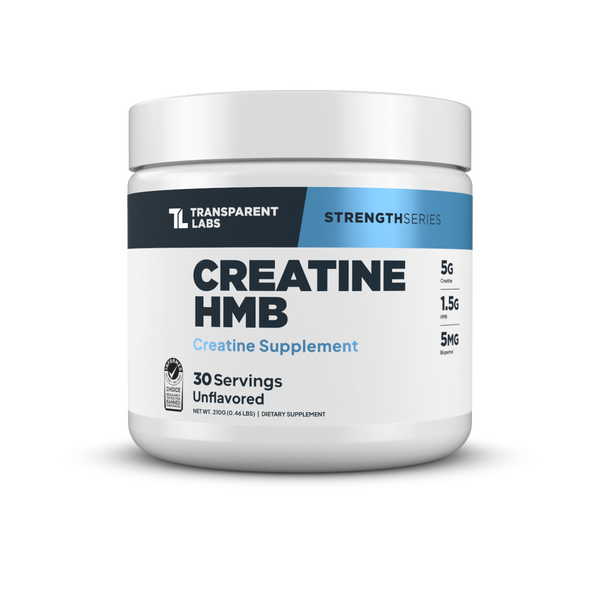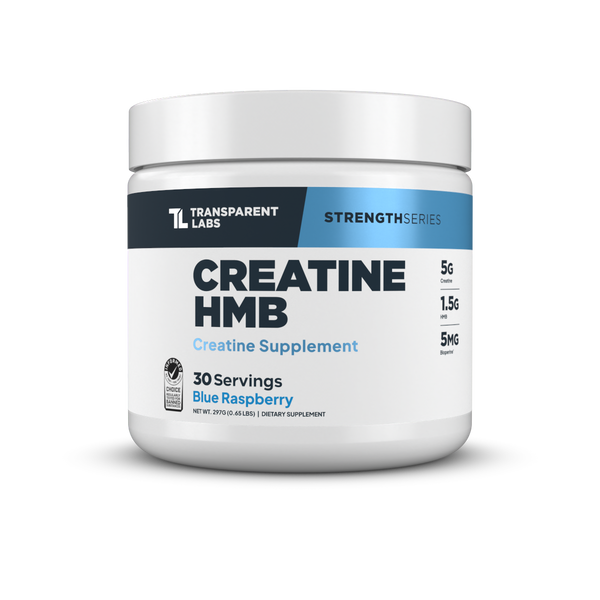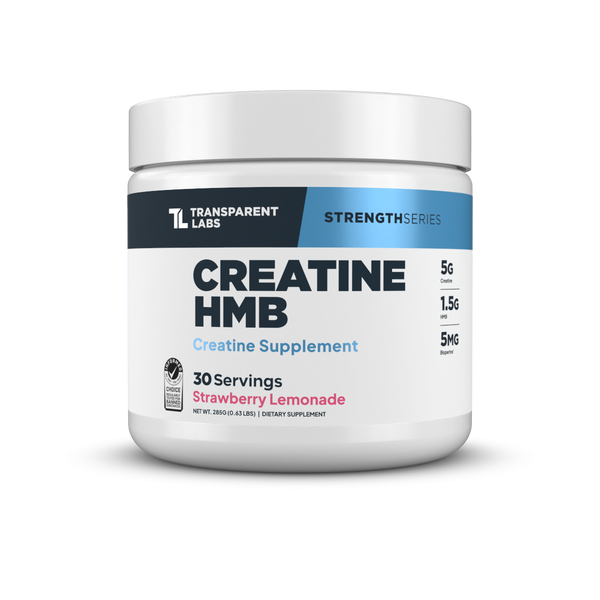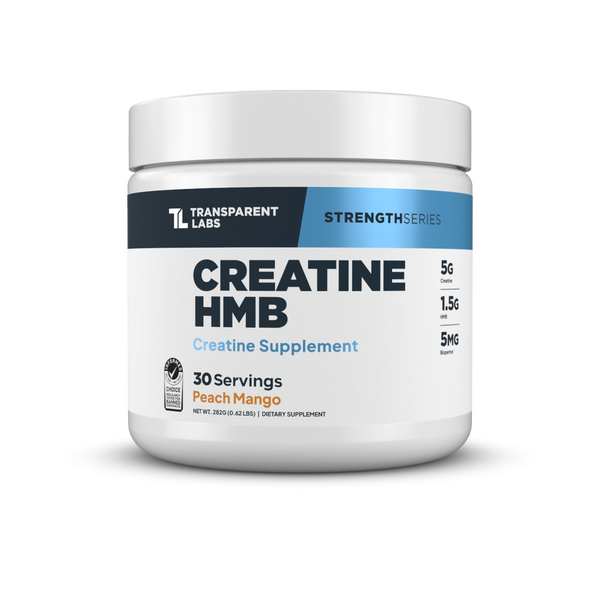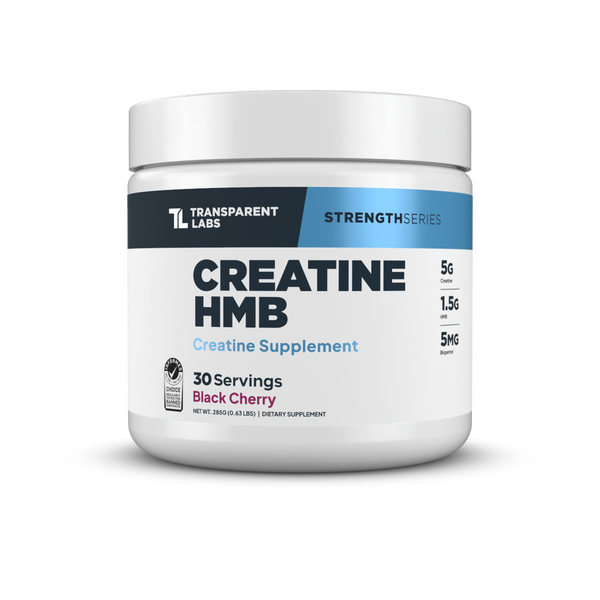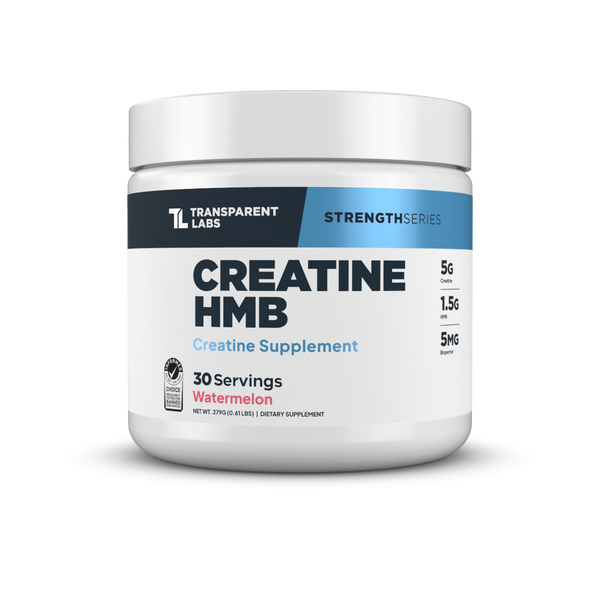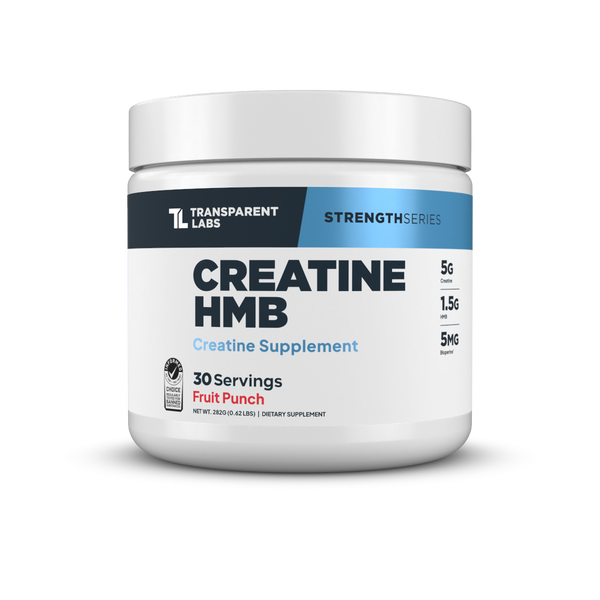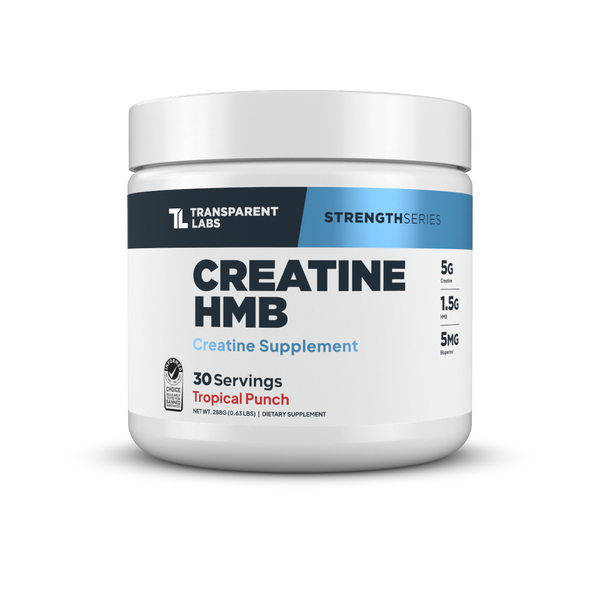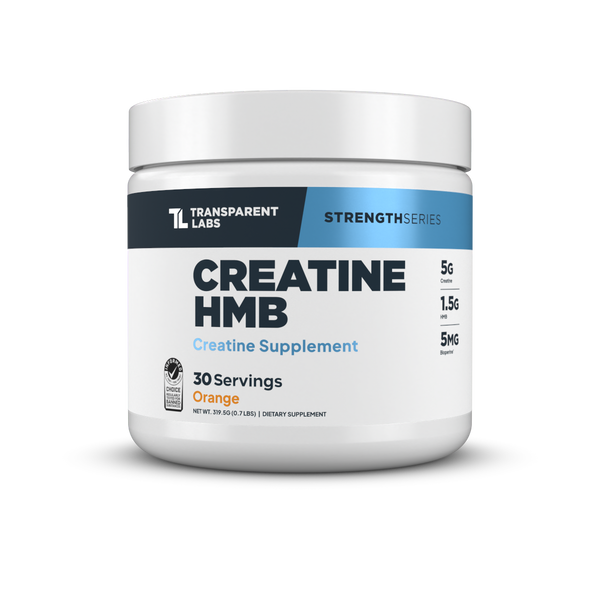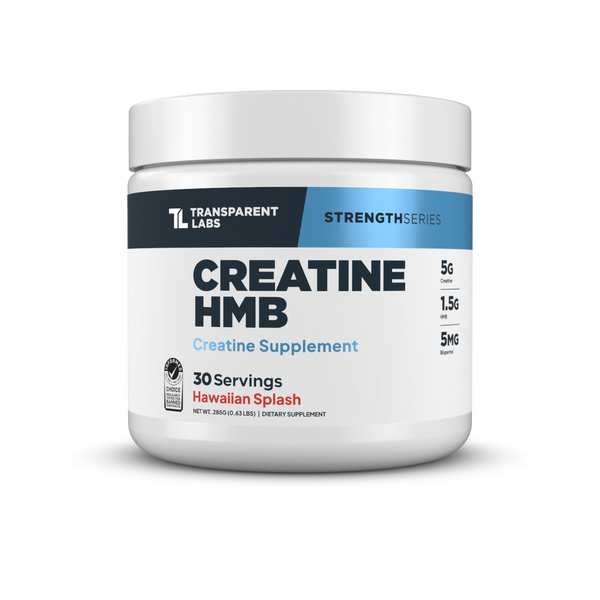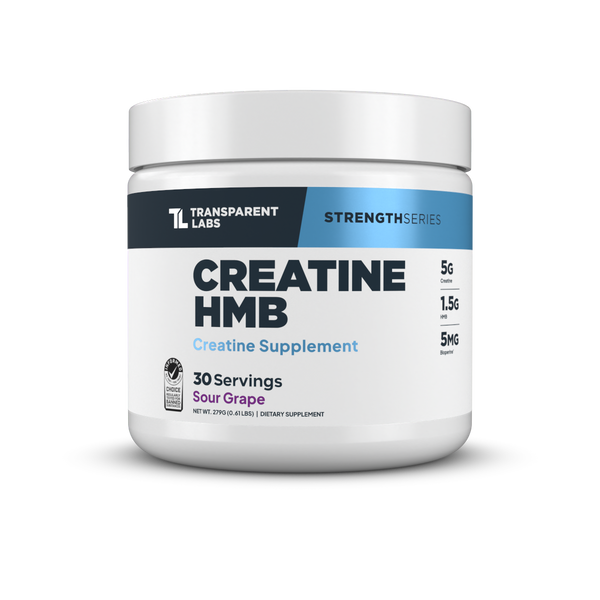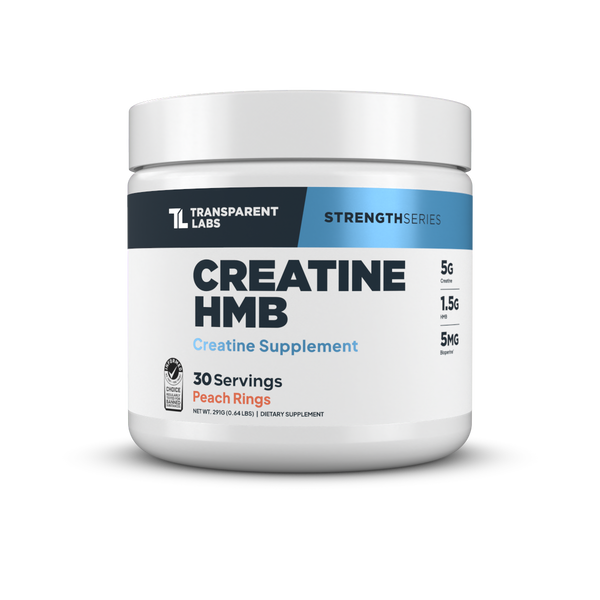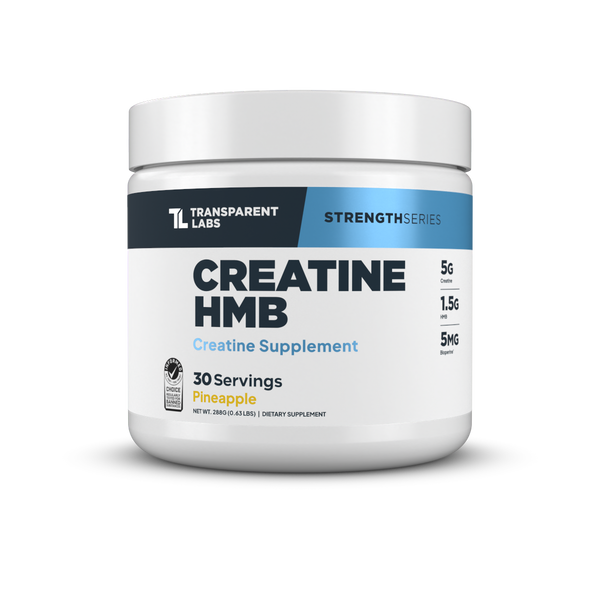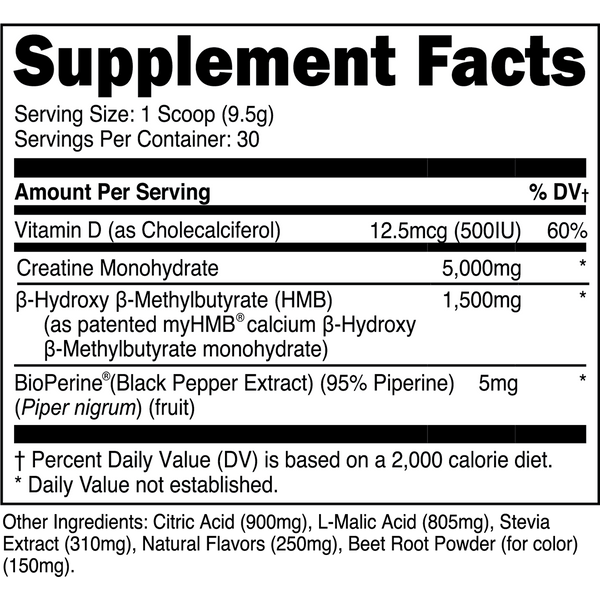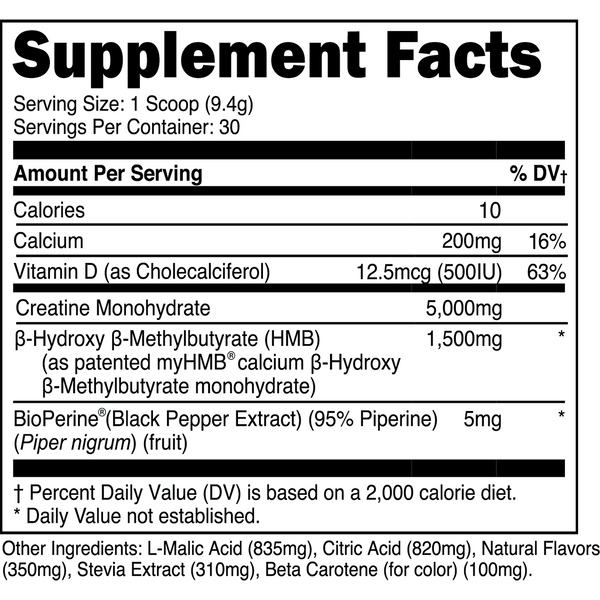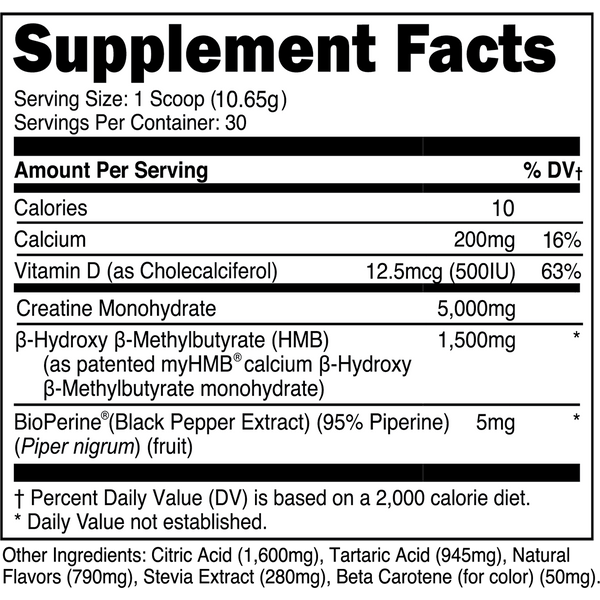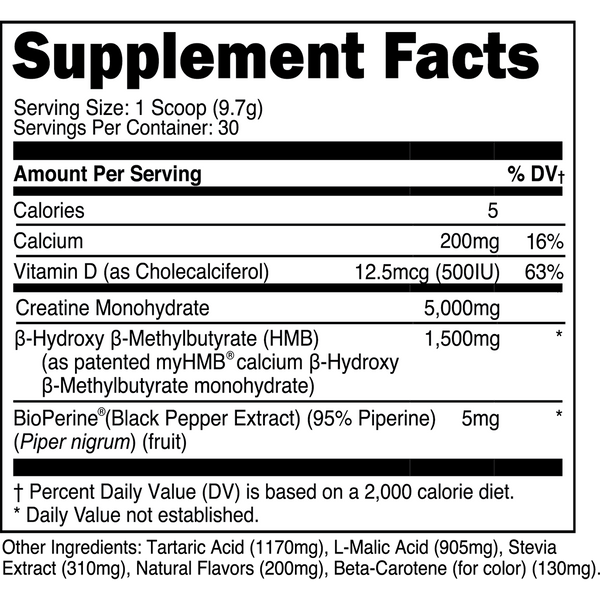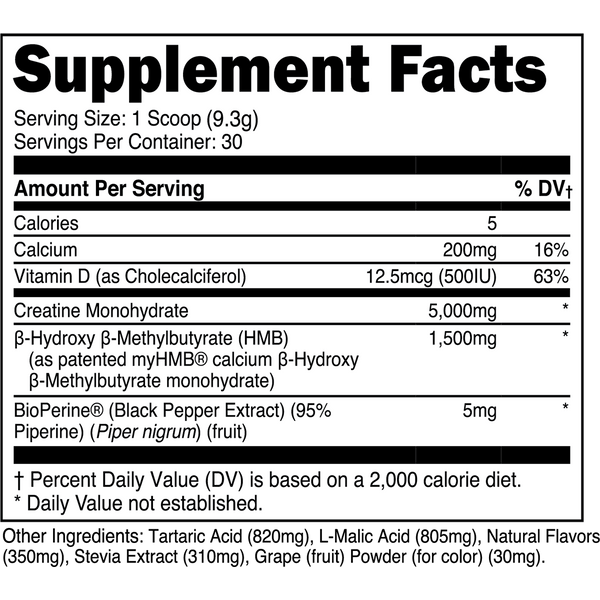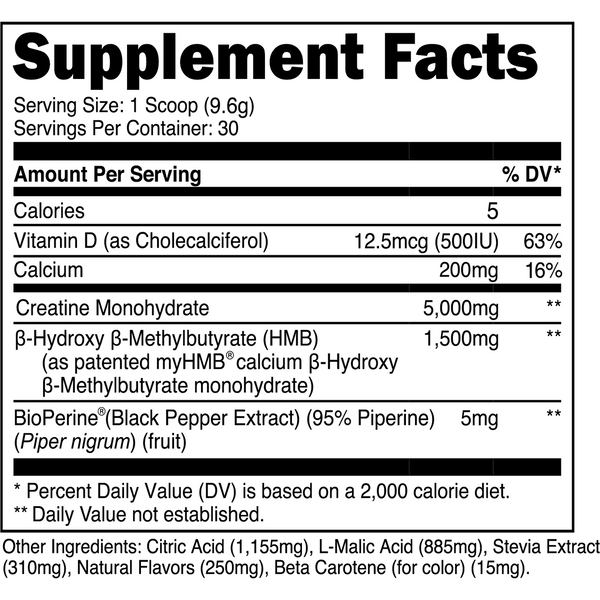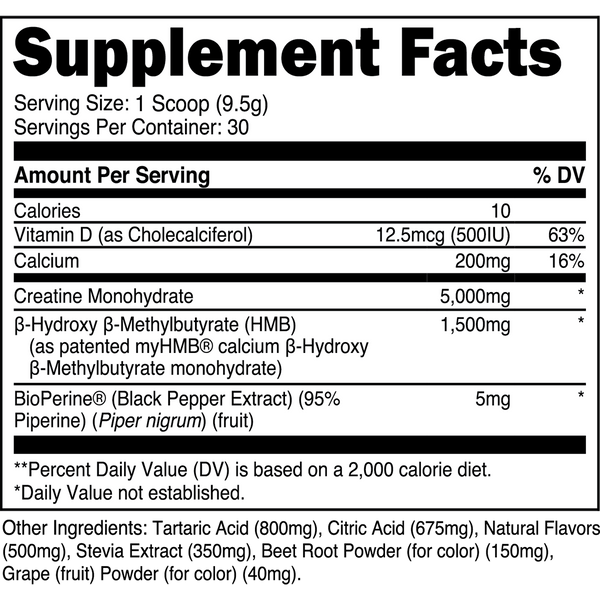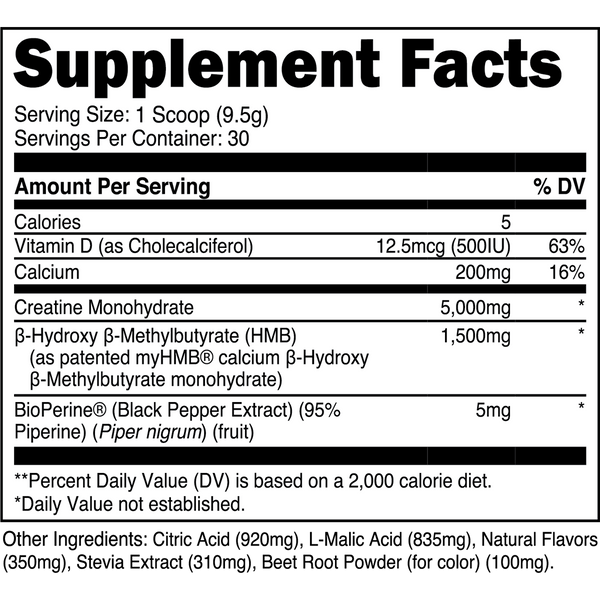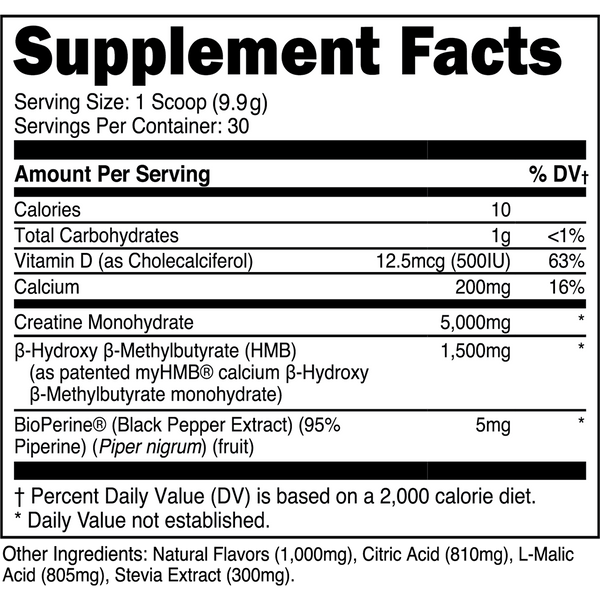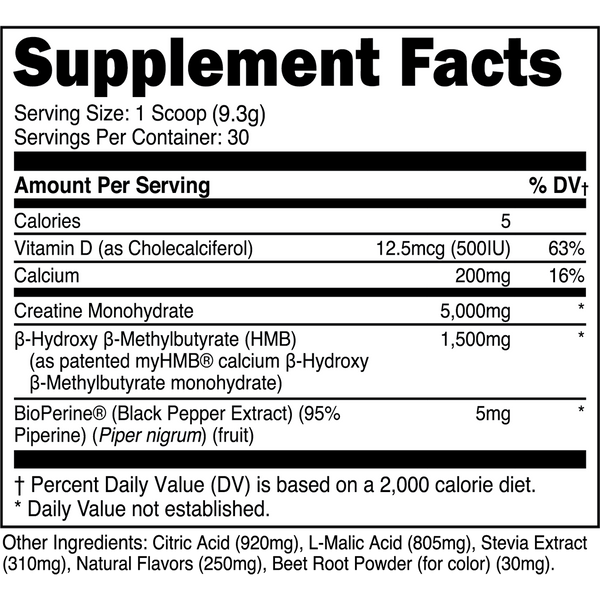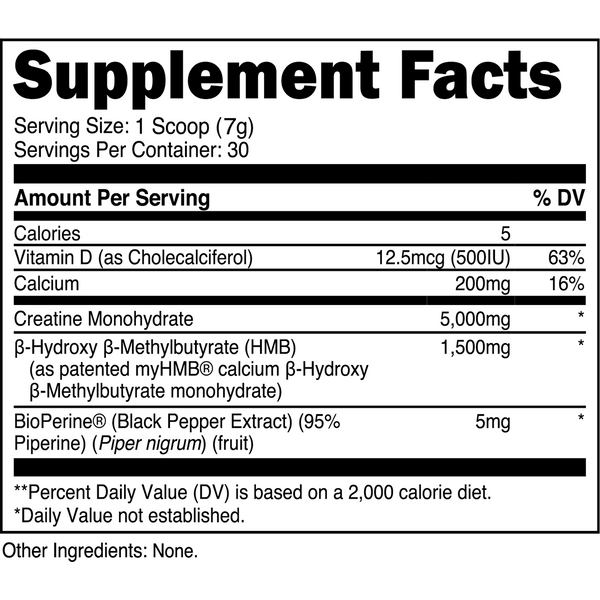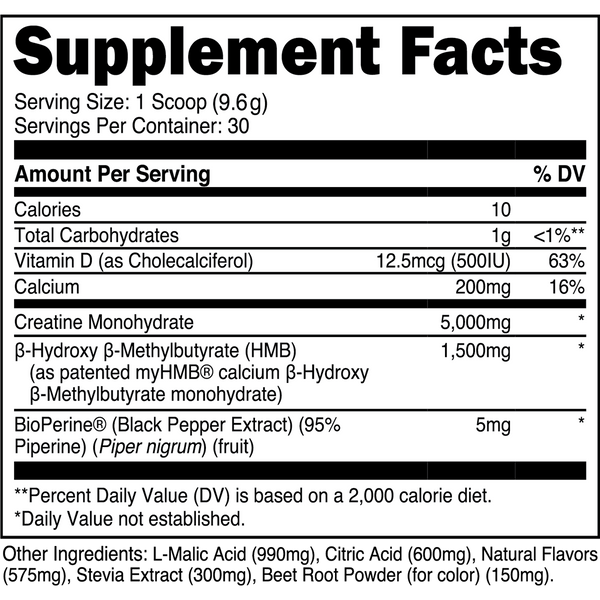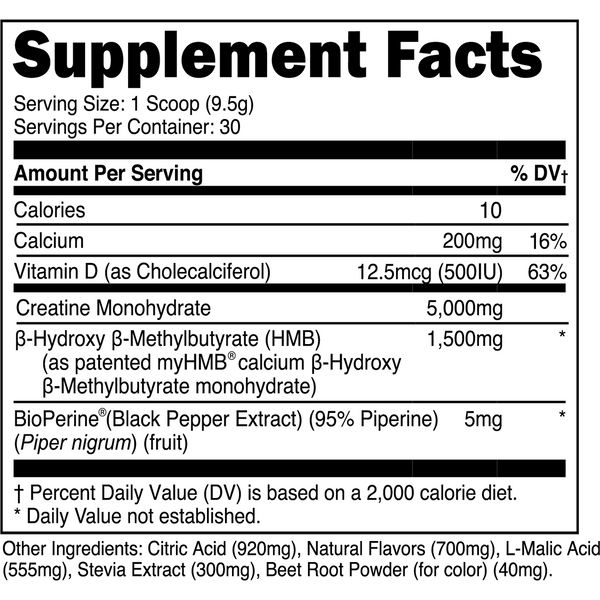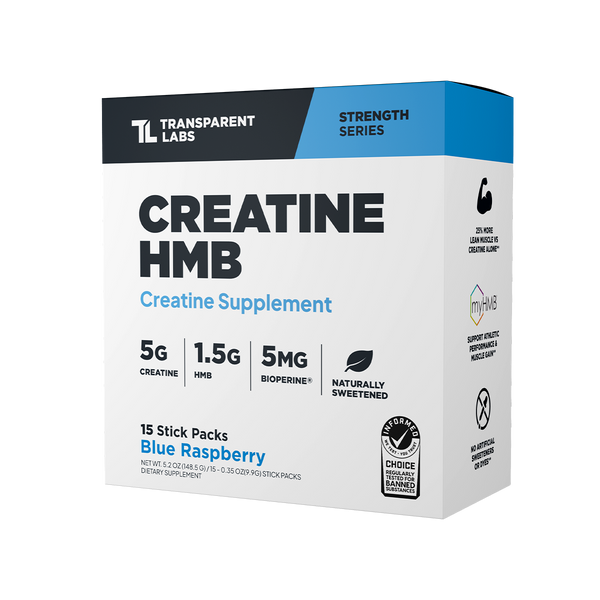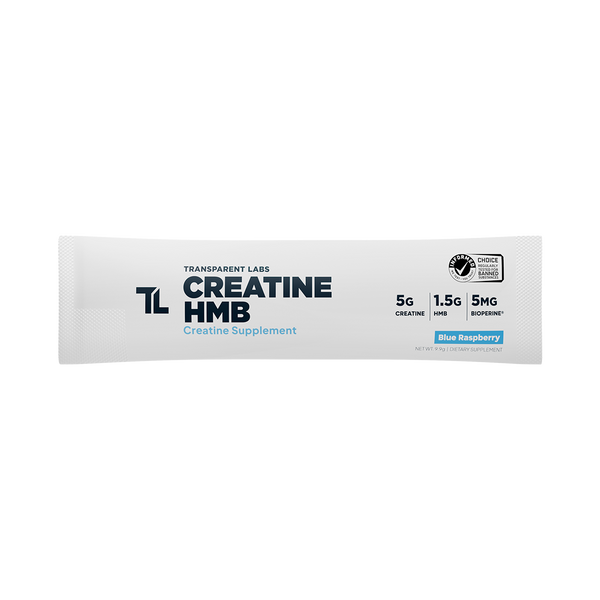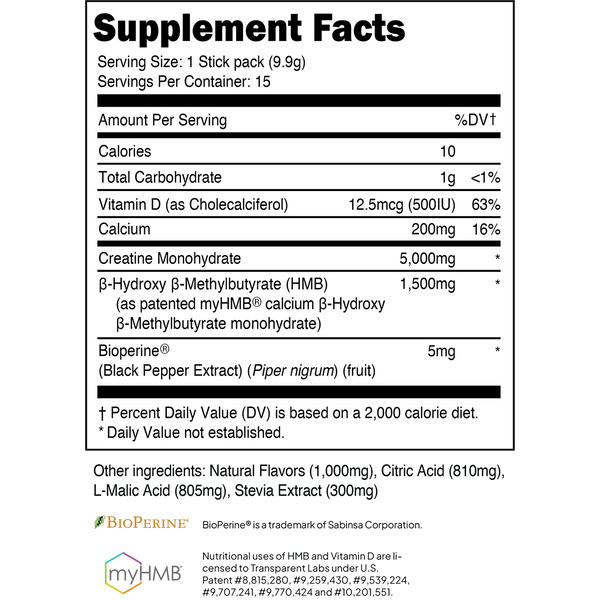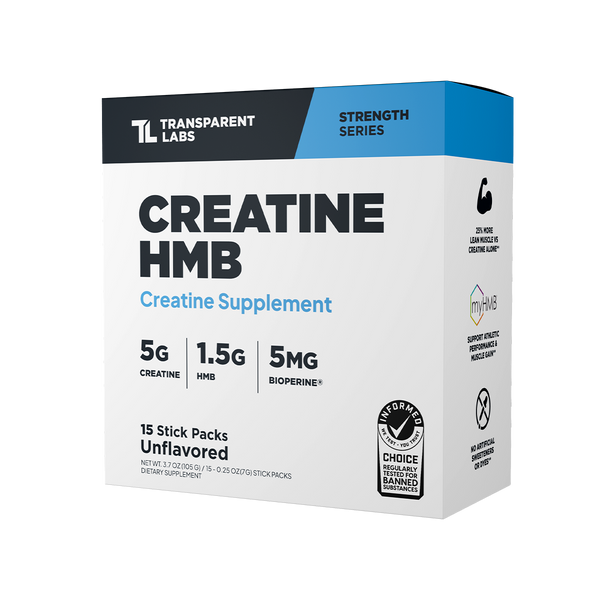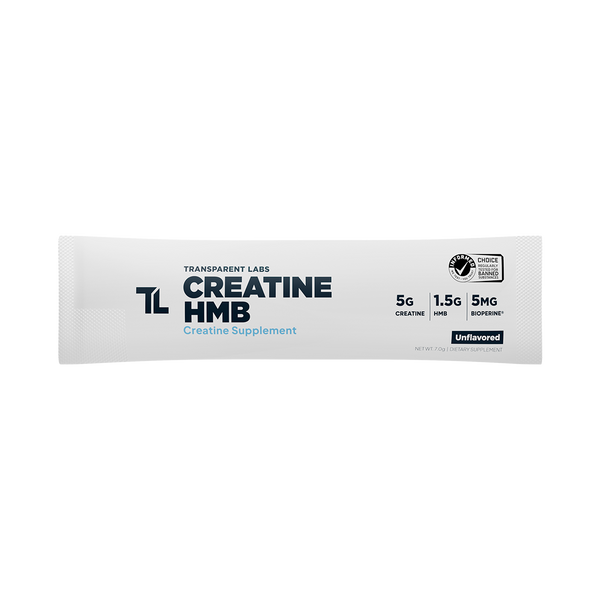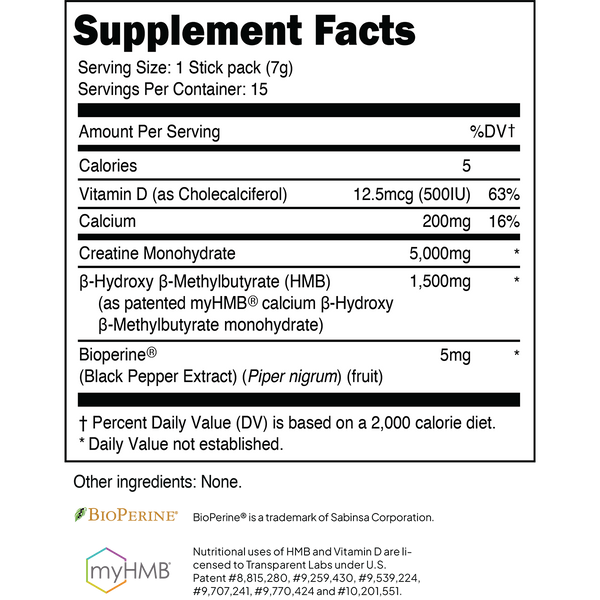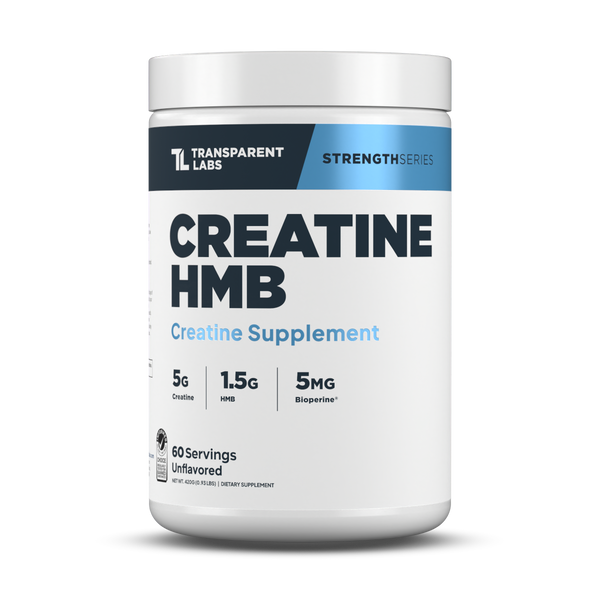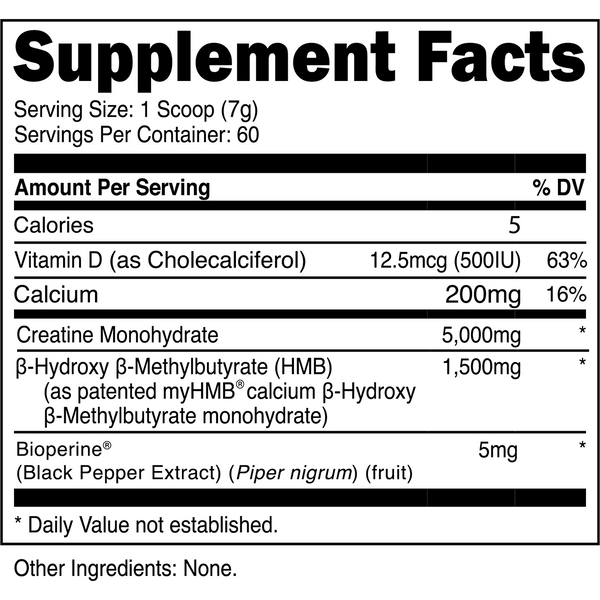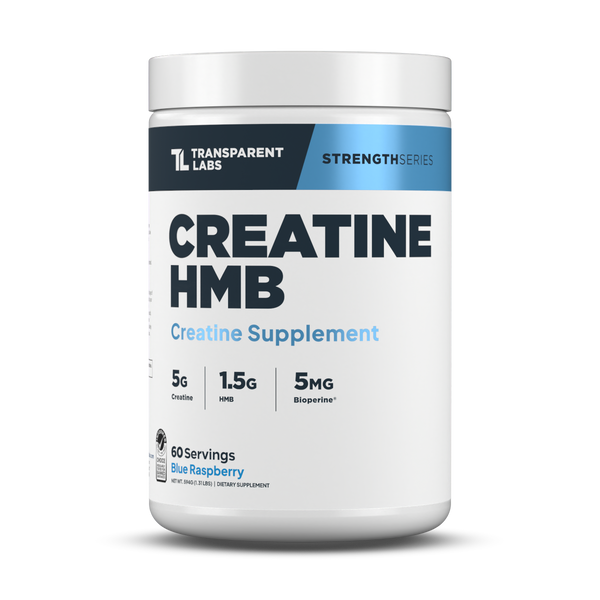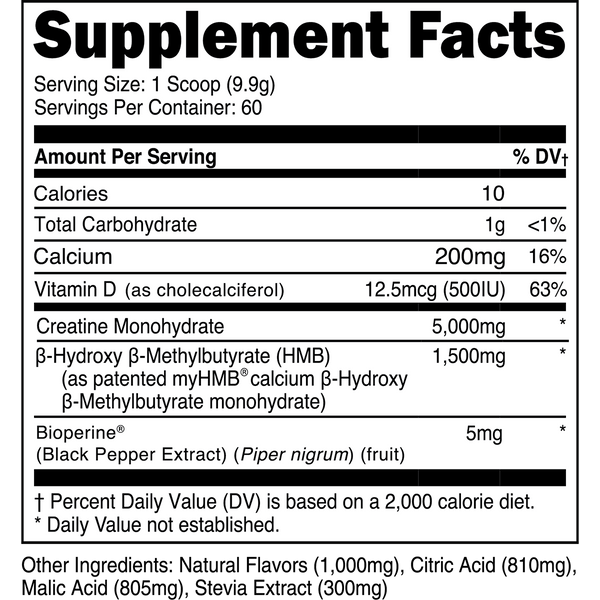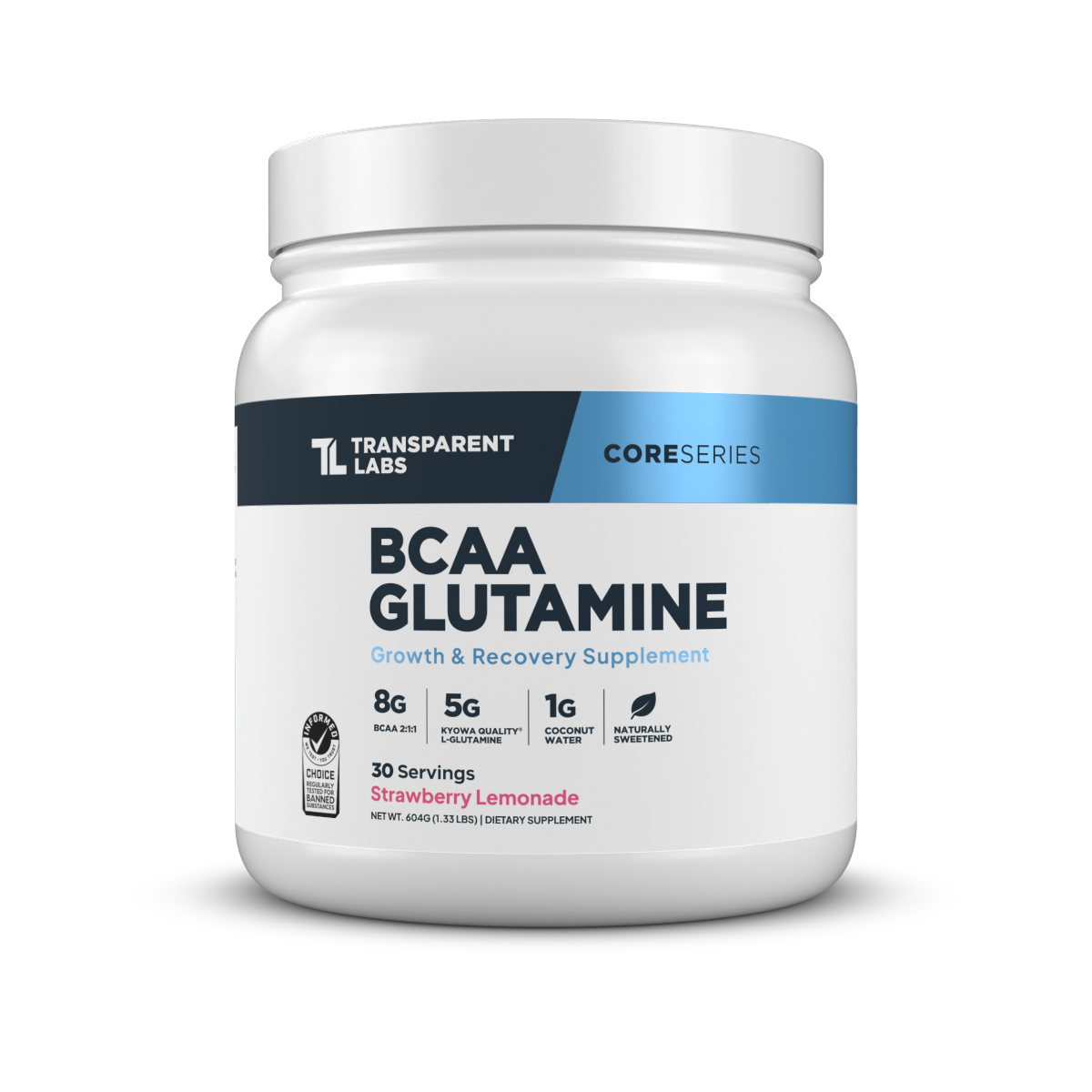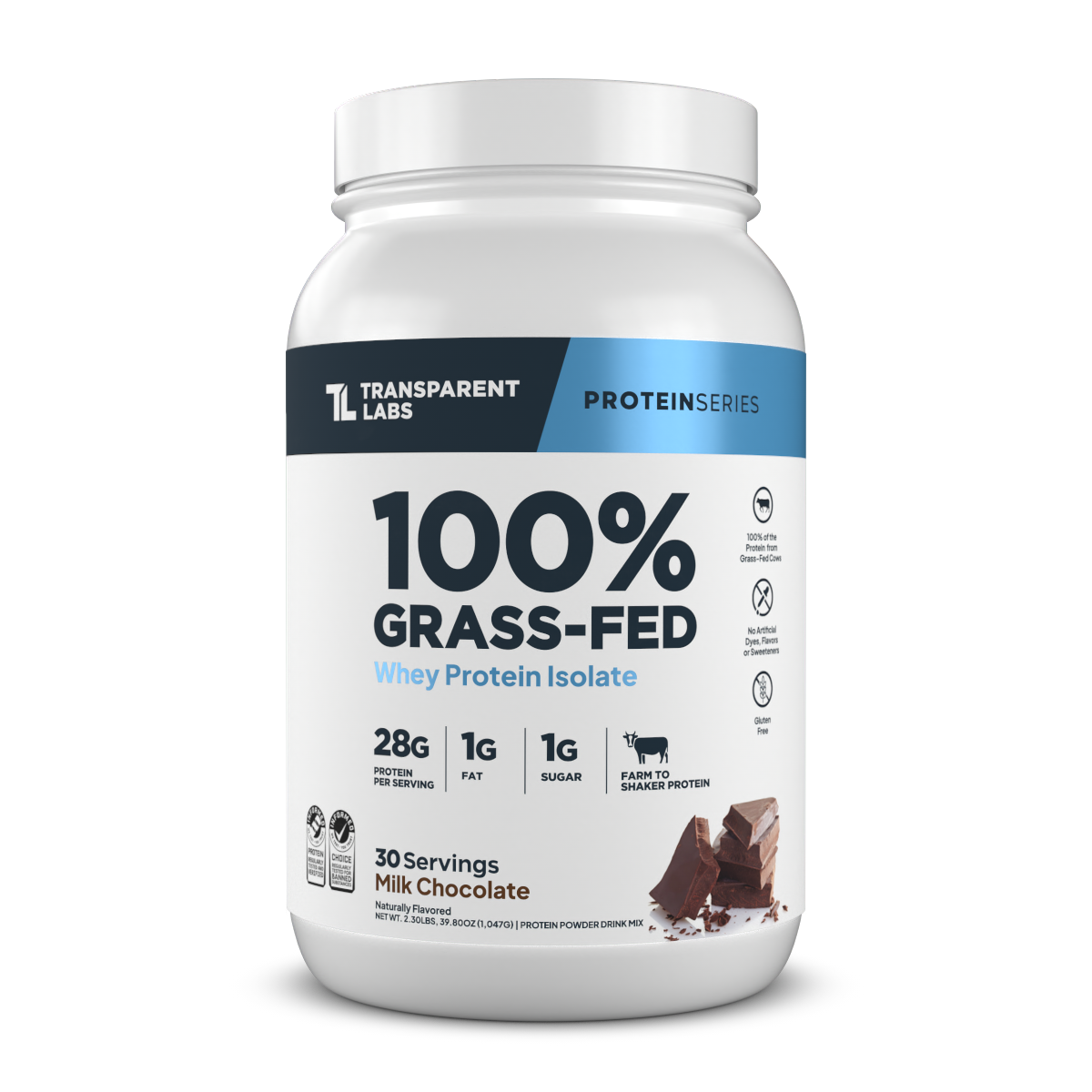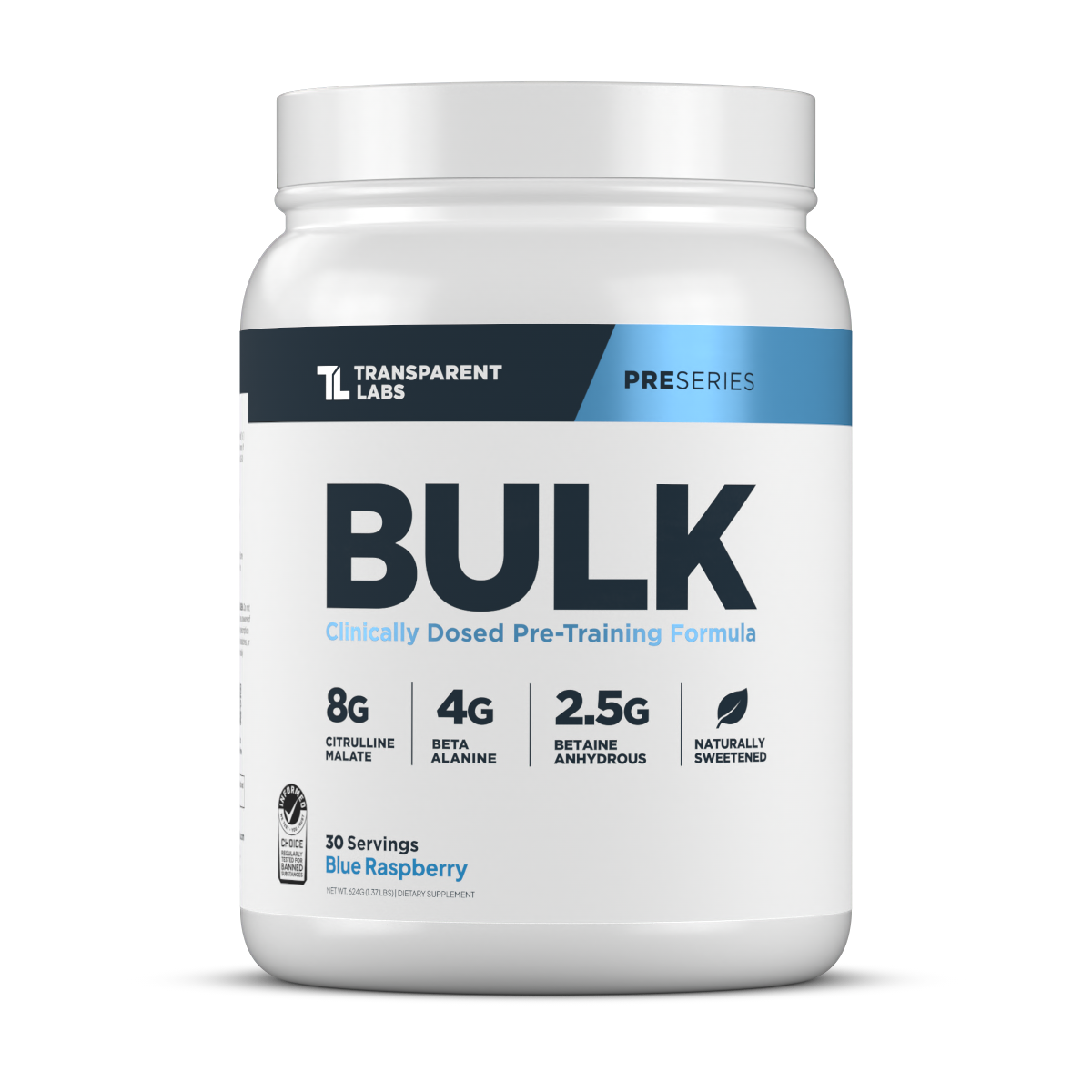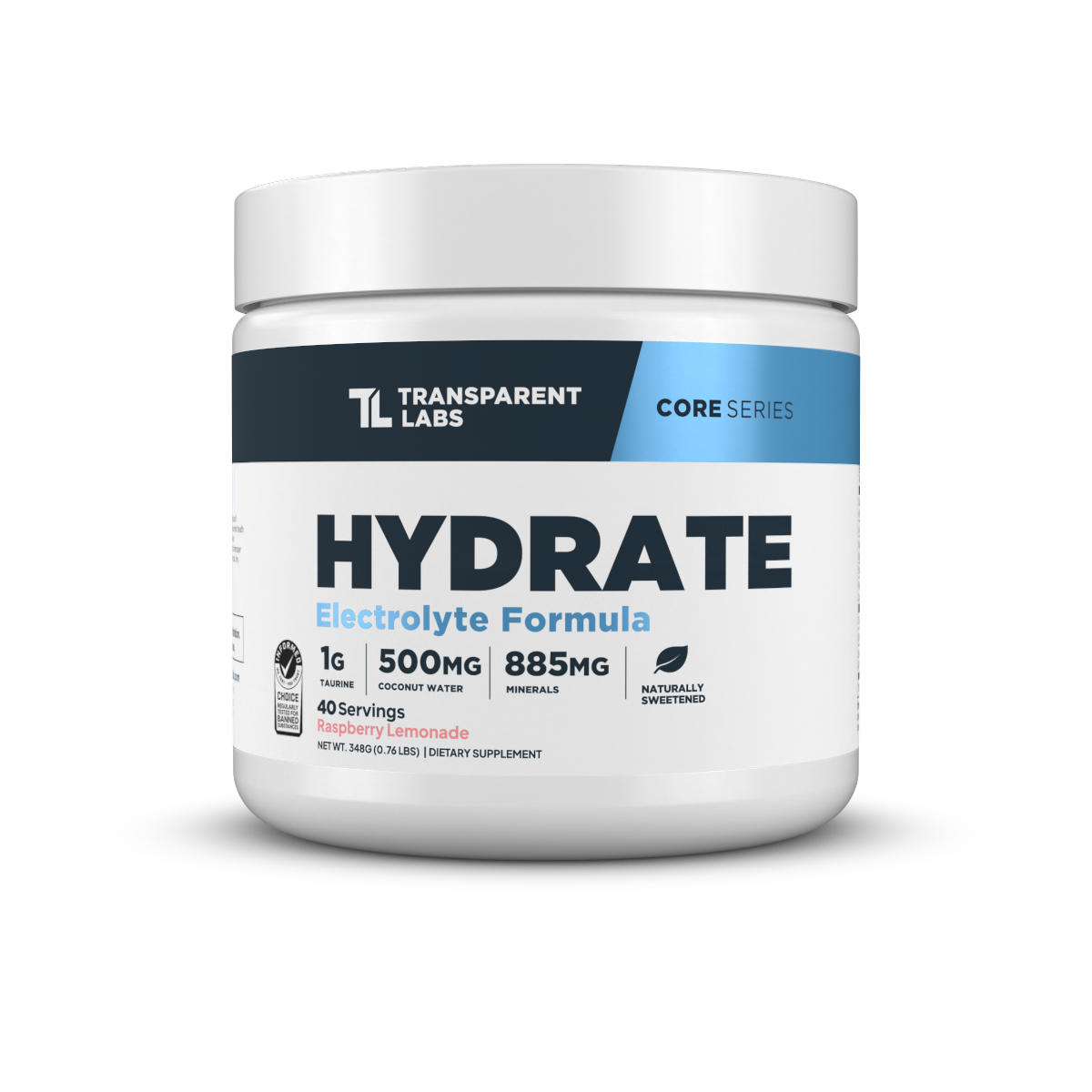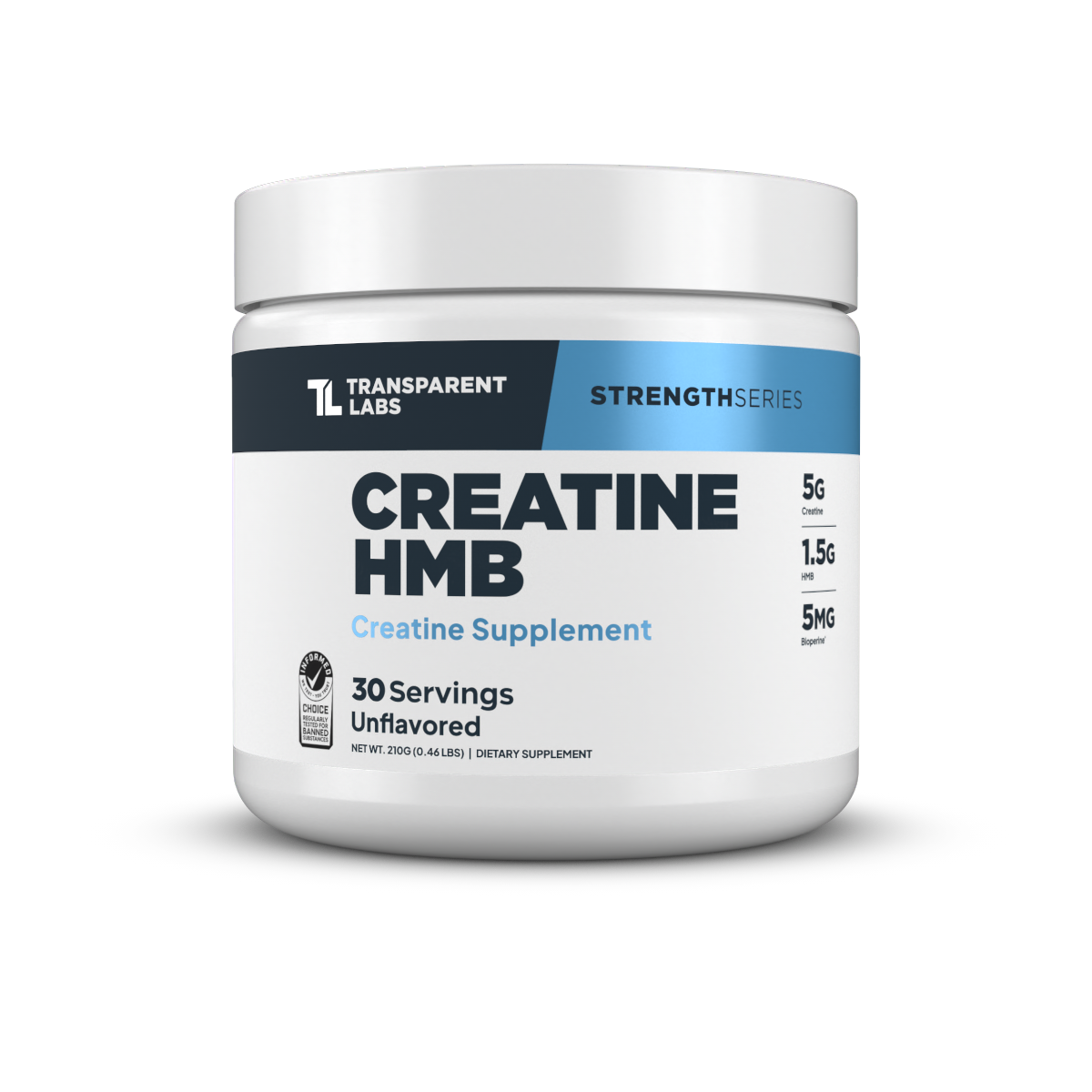
Creatine HMB
Size:
13 Flavors Available:
Third-Party Testing
We believe trust is earned through transparency. That’s why we provide full access to our third-party test results, so you can feel confident in what you’re taking. View all third-party tests.

Transparent Labs Creatine HMB is an evidence-based step forward for creatine supplementation, which is well-known to enhance muscle growth and athletic performance (e.g. muscle endurance and strength).
This formula harnesses the synergy of creatine monohydrate—the most studied form of creatine—and a naturally occurring metabolite known as beta-hydroxy-beta-methylbutyrate (HMB), the latter of which helps reduce muscle damage and muscle protein breakdown.
Creatine HMB is rounded out with BioPerine®, an absorption enhancer, and vitamin D3 for comprehensive muscle recovery and support of lean tissue mass.
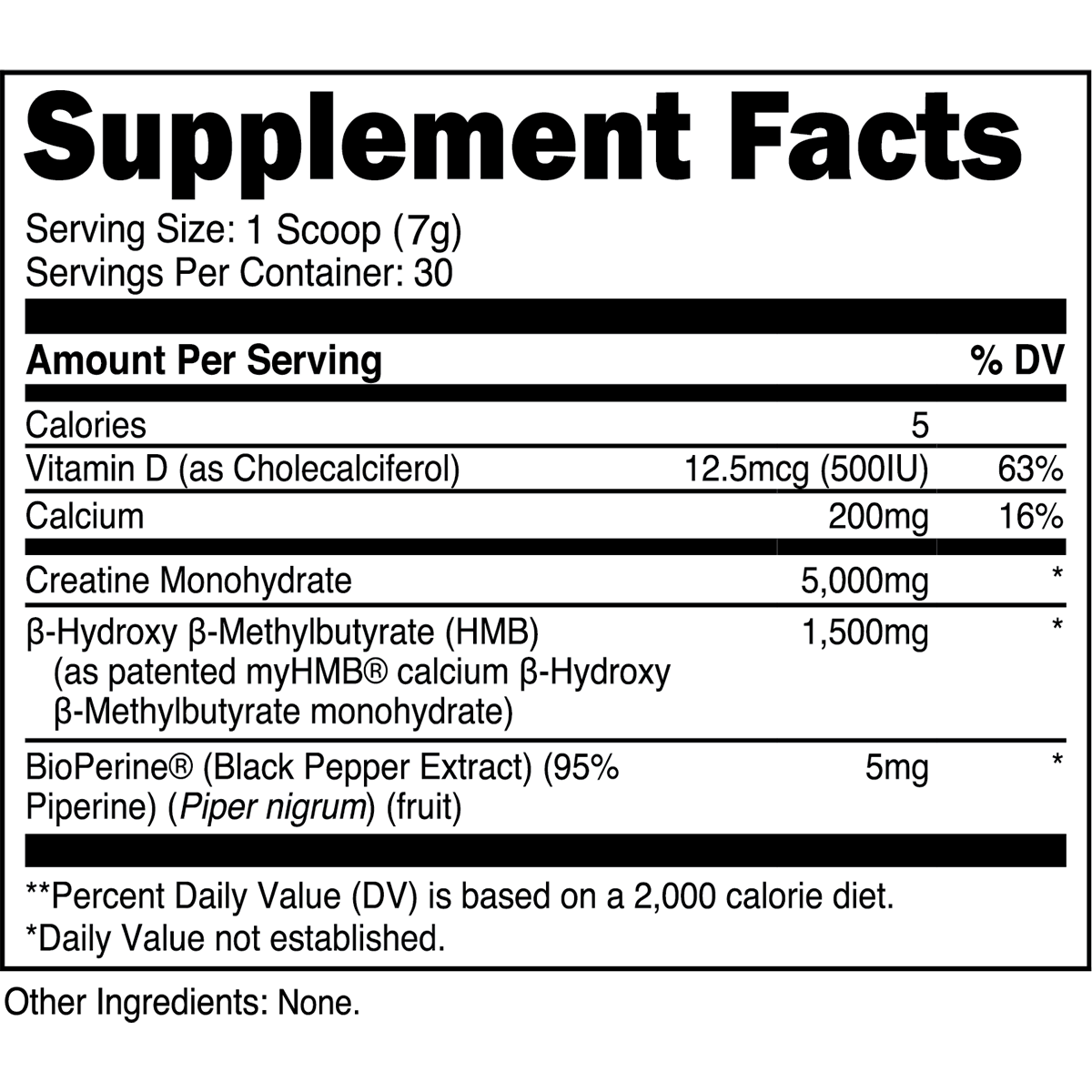
Orders in the US over $99 ship free.
Once your order has shipped out from our fulfillment center, you will receive a Shipping Confirmation email. If you selected a tracked shipping method, you will receive your tracking information, along with the necessary steps to track your order, within this email. Please note, orders are generally fulfilled same day or next business day.
Click here for the full shipping and delivery guide »
45 Day Satisfaction Guarantee
If you are not satisfied with your product, we will offer you a full refund or store credit for the value of the item within 45 days of delivery.
Click here for the full refund policy »
why use Creatine HMB?
Whether you want to build muscle, lose weight, recover quicker, or improve athletic performance, Creatine HMB can help.
Build Muscle Mass
Reap the benefits of evidence-based ergogenic ingredients that promote muscle hypertrophy and support muscle size.

Improve Athletic Performance
Bolster anaerobic and aerobic performance to maximize strength and endurance gains during resistance and weight training.

Enhance Recovery
Accelerate muscle recovery to get back in the gym and stay on track with your fitness goals.

Support Body Composition
Protect your hard-earned muscle mass during weight-loss phases and support healthy weight gain when combined with exercise performance.

Key Ingredients
Creatine Monohydrate
5,000 mg
Creatine monohydrate plays a crucial role in cellular energy production by replenishing adenosine triphosphate (ATP) levels, which is vital during exercise.
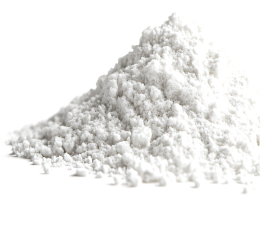
myHMB® ( β-Hydroxy β-Methylbutyrate)
1,500 mg
HMB is a metabolite of the essential amino acid L-leucine, recognized for its role in muscle health and recovery.
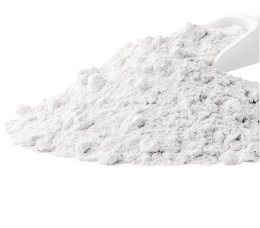
Vitamin D3 (as Cholecalciferol)
12.5 mcg (500 IU)
Vitamin D is an essential fat-soluble micronutrient that plays an important role in maintaining healthy bones, nervous system function, and muscle mass.
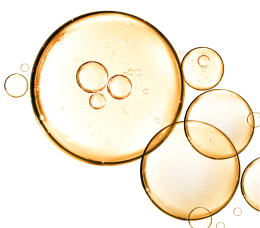
Bioperine® Black Pepper Fruit Extract
5 mg
BioPerine®, a standardized black pepper fruit extract, helps increase absorption of Transparent Labs Creatine HMB.
